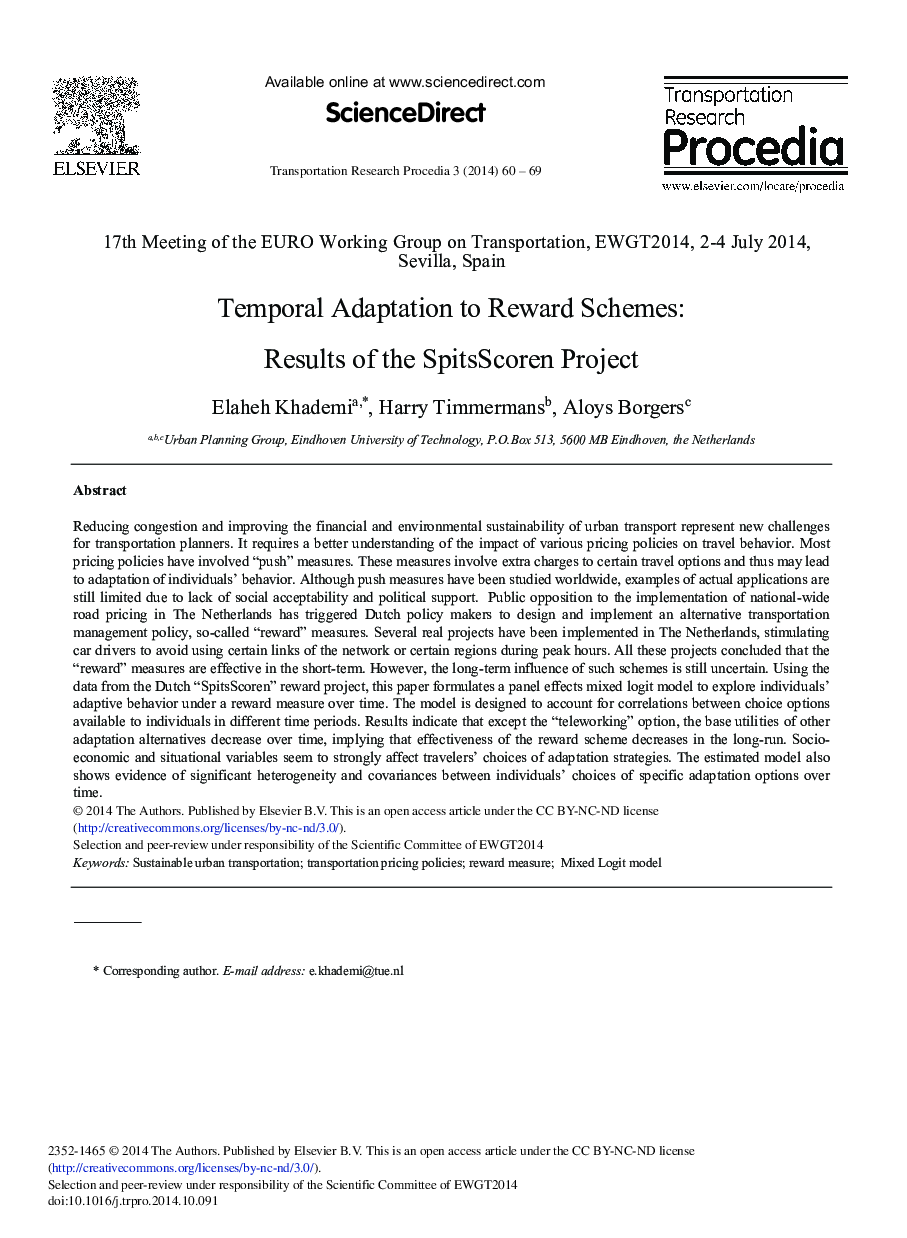| کد مقاله | کد نشریه | سال انتشار | مقاله انگلیسی | نسخه تمام متن |
|---|---|---|---|---|
| 1106383 | 1488292 | 2014 | 10 صفحه PDF | دانلود رایگان |

Reducing congestion and improving the financial and environmental sustainability of urban transport represent new challenges for transportation planners. It requires a better understanding of the impact of various pricing policies on travel behavior. Most pricing policies have involved “push” measures. These measures involve extra charges to certain travel options and thus may lead to adaptation of individuals’ behavior. Although push measures have been studied worldwide, examples of actual applications are still limited due to lack of social acceptability and political support. Public opposition to the implementation of national-wide road pricing in The Netherlands has triggered Dutch policy makers to design and implement an alternative transportation management policy, so-called “reward” measures. Several real projects have been implemented in The Netherlands, stimulating car drivers to avoid using certain links of the network or certain regions during peak hours. All these projects concluded that the “reward” measures are effective in the short-term. However, the long-term influence of such schemes is still uncertain. Using the data from the Dutch “SpitsScoren” reward project, this paper formulates a panel effects mixed logit model to explore individuals’ adaptive behavior under a reward measure over time. The model is designed to account for correlations between choice options available to individuals in different time periods. Results indicate that except the “teleworking” option, the base utilities of other adaptation alternatives decrease over time, implying that effectiveness of the reward scheme decreases in the long-run. Socio-economic and situational variables seem to strongly affect travelers’ choices of adaptation strategies. The estimated model also shows evidence of significant heterogeneity and covariances between individuals’ choices of specific adaptation options over time.
Journal: Transportation Research Procedia - Volume 3, 2014, Pages 60-69